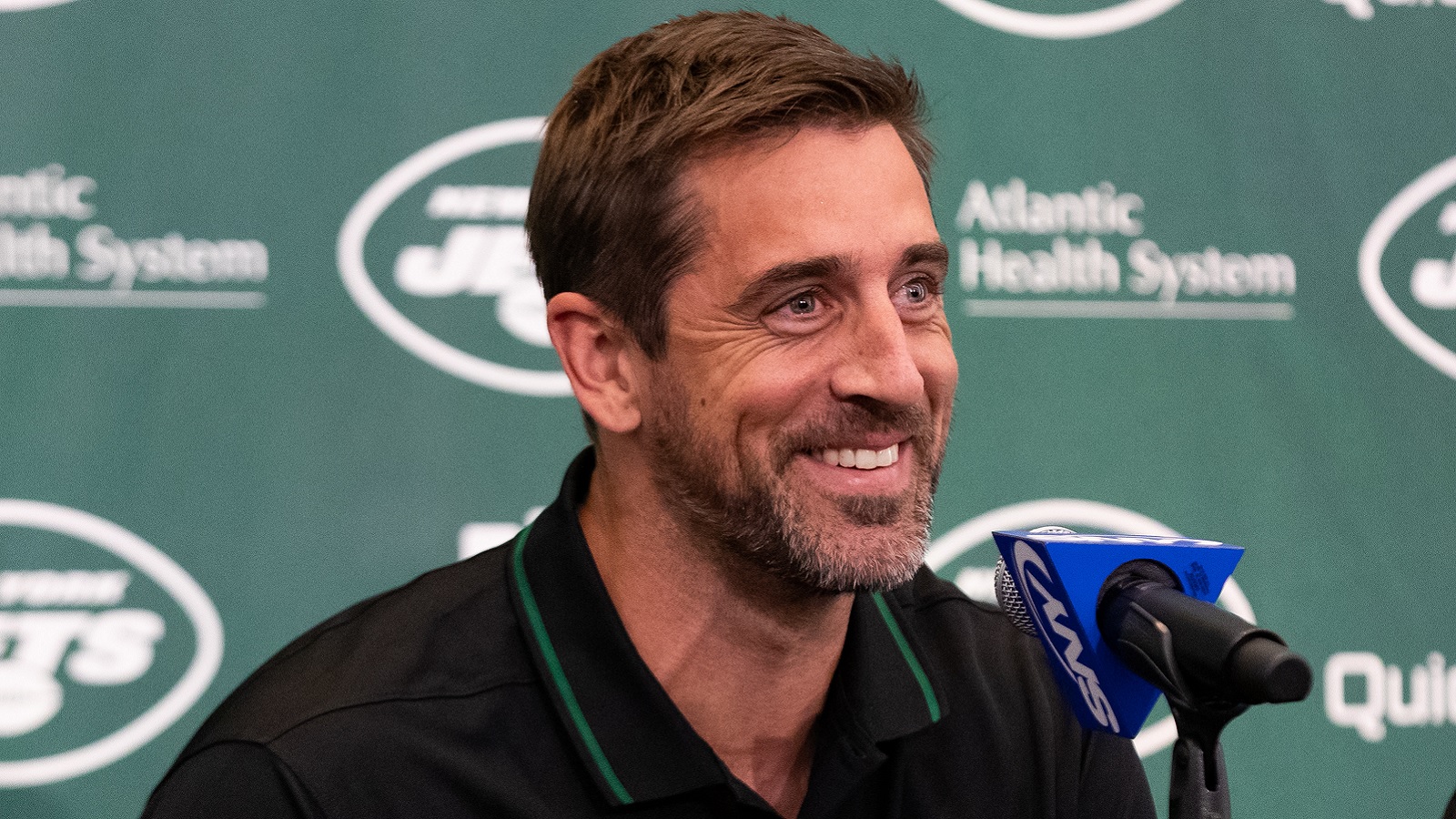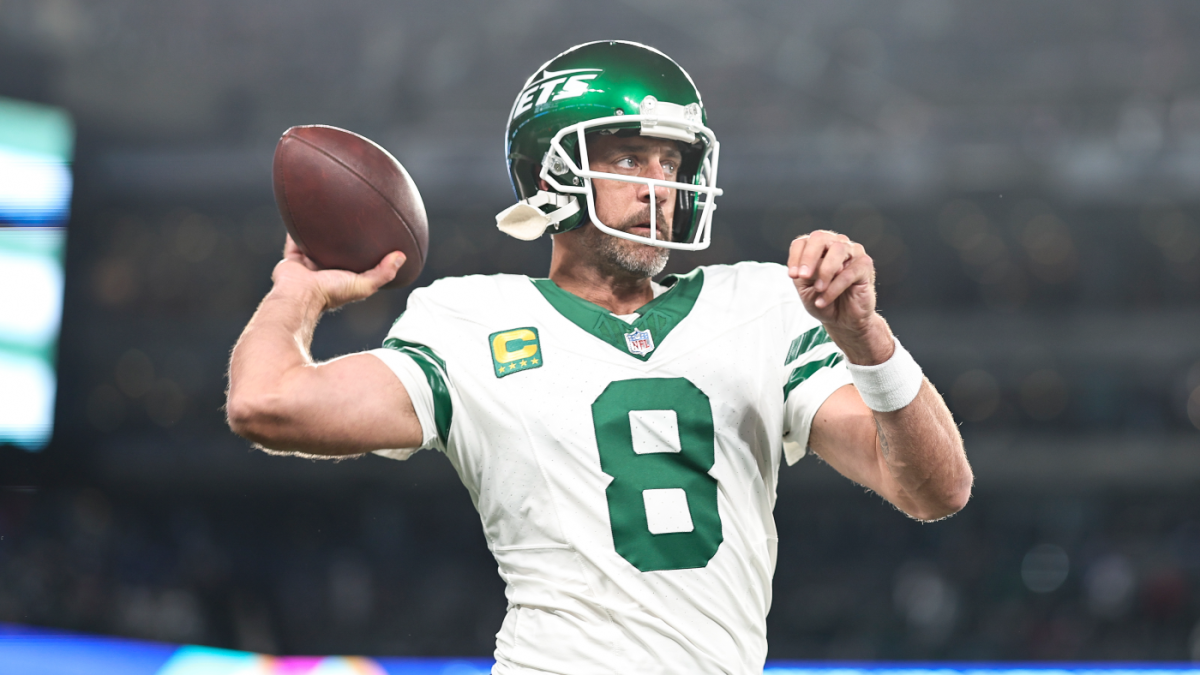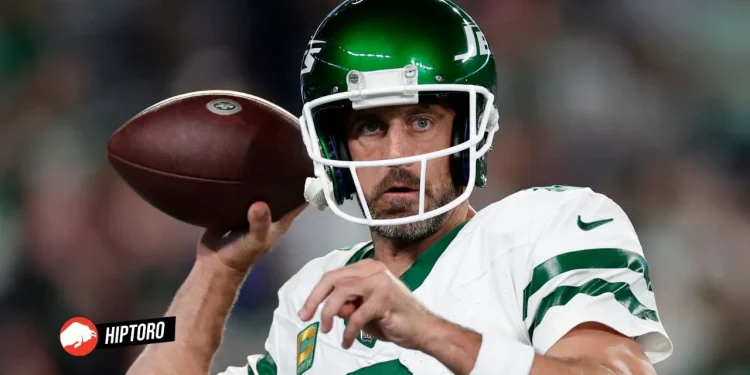In an unexpected turn of events, Aaron Rodgers, the New York Jets quarterback known for his exceptional talent on the football field, finds himself at the center of political discourse.
The four-time NFL MVP, who has made headlines not only for his achievements in sports but also for his distinctive takes on political and social issues, is now being considered for a role far beyond the reach of MetLife Stadium.
Independent presidential candidate Robert F. Kennedy Jr. has named Rodgers as a top choice for his running mate in the 2024 election, sparking discussions and debates across various platforms.

Aaron Rodgers Considers Political Career
Aaron Rodgers’ journey has been nothing short of cinematic. From leading the Green Bay Packers to a Super Bowl victory to his recent stint with the New York Jets, Aaron Rodgers has consistently proven his mettle as one of the greatest quarterbacks of his generation. His accolades, including being a four-time first-team All-Pro and a 10-time Pro Bowl selection, speak volumes about his dedication and skill.
Beyond the field, Rodgers has dabbled in entertainment, serving as a guest host on “Jeopardy!” and openly discussing his experiences with ayahuasca, showcasing a personality that transcends the typical athlete mold.
The revelation of his potential pivot to politics, as reported by the New York Times, comes at a pivotal moment in Rodgers’ career. At 40, after contemplating retirement and facing a season-ending injury just four snaps into his debut game with the Jets, Rodgers is at a crossroads.
His openness about possibly playing “two or three or four more years” juxtaposes the uncertain future of his NFL career with the newfound possibility of a political venture.
Pretty clear now that Aaron Rodgers was actually just filming his first campaign ad here pic.twitter.com/qsjAPXTF2L
— John Breech (@johnbreech) March 12, 2024
A Candidacy Fueled by Controversy and Conviction
Aaron Rodgers has never shied away from expressing his opinions on controversial topics, including vaccines and media portrayal, aligning himself with Kennedy’s stances on several issues. This alignment has not only fueled speculation about Aaron Rodgers’ future but has also emphasized the quarterback’s readiness to tackle challenges beyond football.
Whether discussing popular conspiracy theories or advocating for political figures, Rodgers’ vocal presence in the public sphere signifies a readiness to engage with matters of national importance.
The potential of Rodgers transitioning from professional sports to a vice-presidential candidacy underscores a fascinating narrative of transformation.
With Kennedy reportedly considering other sports figures for roles within his proposed administration, such as wide receiver Randall Cobb or left tackle David Bakhtiari as Homeland Security Advisor, the blending of sports excellence and political ambition suggests a campaign strategy unbound by traditional norms.

Aaron Rodgers From Gridiron to Government
As Aaron Rodgers contemplates the next chapter of his life, the question arises: can the drive, leadership, and resilience that propelled him to the pinnacle of NFL success translate into a successful political career? While the prospect of Rodgers joining Kennedy on the campaign trail remains speculative, it reflects a broader conversation about the role of athletes in societal and political arenas.
Aaron Rodgers’ journey from NFL stardom to potentially groundbreaking political partnership with Kennedy Jr. marks an intriguing pivot point, not just for the quarterback himself but for the intersection of sports, politics, and public discourse.
In the realm of possibilities, Aaron Rodgers’ story is a testament to the unpredictability of personal and professional evolution. Whether he returns to the field to chase another Super Bowl ring or ventures into the political arena, Rodgers remains a figure of immense interest and influence, capable of sparking dialogue and change in whichever path he chooses to pursue.
As the world watches, the legacy of Aaron Rodgers continues to unfold, blending the lines between athleticism, advocacy, and ambition in an unprecedented narrative of potential and possibility.

Source: The New York Times









